Mitsubishi Shipbuilding Books Order for Three Methanol-Fueled RoRos
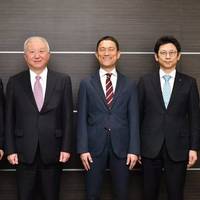
Mitsubishi Shipbuilding, a part of Mitsubishi Heavy Industries (MHI) Group, has received additional orders for three methanol-fueled roll-on/roll-off (RoRo) cargo ships from Toyofuji Shipping, Miyazaki Sangyo Kaiun, and Nichitoku Kisen.The three ships will be built at the Enoura Plant of MHI's Shimonoseki Shipyard & Machinery Works in Yamaguchi Prefecture, with scheduled completion and delivery in order from fiscal 2028.The ships will be approximately 168.0 meters in overall length and 30.2 meters in breadth…
Twelve Large Container Ships to Have GTT LNG Fuel Tanks

GTT has received an order from HD Hyundai Heavy Industries to design the cryogenic fuel tanks for 12 new LNG-fuelled container vessels on behalf of a European shipowner.The Mark III Flex membrane tanks will have a capacity of 12,750 cubic metres and the “1 barg” design, which allows an effective operating pressure of up to 1 barg instead of the customary 0.7 barg.The Mark III membrane system is a containment and insulation system directly supported by the ship’s hull structure.
MAN Methanol Genset Obtains Type Approval
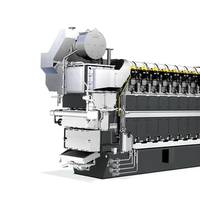
MAN Energy Solutions' MAN 7L21/31DF-M (dual fuel-methanol) genset has successfully passed its Type Approval Test in China.The test was carried out in close cooperation with CSSC Marine Power (CMP) – the MAN Energy Solutions licensee – at CMP’s production facility in Zhenjiang and received approval from all major classification societies present at the event.The basis for the new methanol engine concept is the MAN 21/31 Mk II type that is part-load optimized with a world-best specific fuel-oil consumption in the 1–2MW range.
WinGD Debuts On-Engine SCR
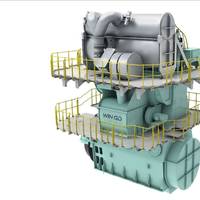
WinGD will be deploying its on-engine NOx reduction solution ed for the first time on commercial engines after securing type approval.The integrated Selective Catalytic Reduction (iSCR) solution was tested at Mitsui E&S DU (MESDU) Co’s factory in Aioi, Japan, where three WinGD 5X52-S2.0 engines are being built for bulk carriers under construction at a Japanese shipyard.The type approval follows more than two years of service experience with a prototype version. The latest iteration features reduced material and production costs…
MOL Picks Up Long-Term Charter for Three VLECs with Thai Firm
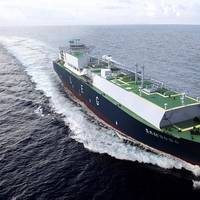
Mitsui O.S.K. Lines (MOL) has signed a long-term charter contract for three newbuilding very large ethane carriers (VLECs) with SCG Chemicals, a wholly owned subsidiary of Thailand's Siam Cement Group (SCG).The 100,000 m3 VLECs, spanning 230 meters in lengths and with breadths of 36.6 meters, will be built at Samsung Heavy Industries, and are scheduled for delivery in 2027.The vessels will be equipped with dual-fuel ethane propulsion engines, which will reduce greenhouse gas, sulfur oxide…
One-on-One: Sameer Kalra, President, Marine, Alfa Laval

Tech leaders across maritime have the unenviable task of plotting for, at best, a fuzzy future. Make no mistake, the mission is clear: emission reduction leading to decarbonization. But the means to that end – and the realistic timeframe to get there – is less than clear. Sit with Sameer Kalra, President, Marine, Alfa Laval for awhile and it becomes abundantly clear he has a firm handle on the means to make money for Alfa Laval today while funding the technologies that will power the company’s future.Sameer Kalra…
INSIGHTS: Sweden’s Alternative Fuel Development Faces Wider Market Hurdles
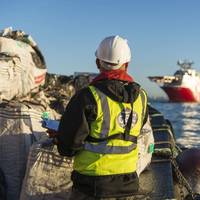
Despite becoming a major developer of alternative fuels for the maritime sector, Sweden is facing limited access to the wider European market. Nils Igelström, Managing Director of GAC Sweden, discusses the need for greater clarity to prevent shipping’s energy transition stalling.Sweden is in a very strong position to support the maritime sector’s alternative fuel development. Tied closely to the country’s own goal of reaching net zero by 2045, it is investing heavily in infrastructure project to develop biofuels…
Container Shippers Mitigating Green Transition Risks with Dual-Fuel Vessel Orders
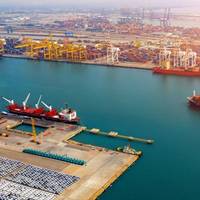
Container shipping companies like Maersk, CMA CGM and COSCO have ordered hundreds of new vessels in recent years meant to help their industry slash greenhouse gas (GHG) emissions to meet rising demand from customers and regulators around the globe.Their order books, however, reflect uncertainty over which of a wide array of so-called green fuels will become the standard in the decades to come, and whether supplies will be cheap and abundant enough to keep their fleets in motion.Decarbonizing…
In Depth: Outcomes of MEPC 82
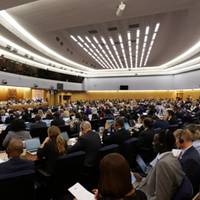
The IMO Marine Environment Protection Committee MEPC 82 met from 30 September to 4 October 2024 and discussed a range of environmental matters, including proposed mid-term measures for the reduction of greenhouse gas (GHG) emissions from ships, enhancing energy efficiency of shipping, tackling marine litter, ballast water management and underwater noise reduction.Tackling climate change - cutting GHG emissions from shipsThe Committee made progress on the development of mid-term…
Manawanui Sinking: Speedy Cleanup Will Be Crucial, But Many Challenges Ahead
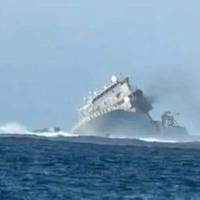
Speed will be of the essence as salvage crews attempt to stop fuel leaking from the sunken New Zealand naval ship off the coast of Samoa.The HMNZS Manawanui ran aground last weekend on a reef about one nautical mile off the south coast of Upolu, Samoa’s most populated island. The specialist dive and hydrographic vessel was on its third deployment, conducting a reef survey, when it caught fire and sank.The ship has come to rest at a depth of up to 150 metres, which means it may be relatively undisturbed even during storms.
MSC Cruises in Hot Water Over Greenwashing
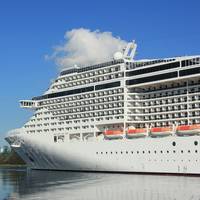
Sustainability claims by MSC Cruises, including that it targets "net zero by 2050" do not meet standards, the Dutch advertising board found on Wednesday in one of the first decisions against a cruise operator following a greenwashing complaint.MSC, a privately held Swiss-Italian firm that is among the world's largest cruise operators, said in a reaction it welcomed some parts of the decision and had "already implemented most of the changes advised".Greenwashing entails a company giving a misleading impression of its environmental credentials.
New Fuel Restrictions for Ships in Arctic Fall Short, Green Groups Say
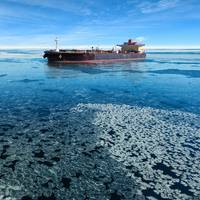
Ships sailing through Arctic waters will no longer be able to use or carry heavy bunker fuel oil under a United Nations shipping agency regulation which took effect on Monday.Yet environmental groups say the ban does not go far enough in geographic scope or addressing dirty black carbon emissions from ships, which can darken white ice and speed up the melting wrought by climate change. The ban, adopted in 2021 by the UN's International Maritime Organization (IMO), aims to prevent…
Mitsubishi Shipbuilding Receives Orders for Methanol-Fueled RoRos
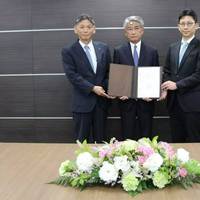
Mitsubishi Shipbuilding has received orders from Toyofuji Shipping and Fukuju Shipping for Japan's first methanol-fueled roros.The two ships will be built at the Enoura Plant of MHI's Shimonoseki Shipyard & Machinery Works in Yamaguchi Prefecture, with scheduled completion and delivery by the end of fiscal 2027.The ships will be approximately 169.9 meters in overall length and 30.2 meters in breadth, with 15,750 gross tonnage, and loading capacity for around 2,300 passenger vehicles.A windscreen at the bow and a vertical stem are used to reduce propulsion resistance…
Red Sea Dissruptions Are Driving Up Carbon Emissions
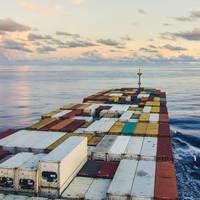
A surge of attacks on ships traveling the waters of the Red Sea is forcing shippers to reroute their vessels, sending them on longer journeys that drive up their carbon dioxide emissions.For companies struggling to account for – and lower – the climate-warming emissions associated with their businesses, these rerouted journeys add to the challenge. Many companies had already revamped their supply chains as they navigated COVID-19 disruptions, extreme weather risks, trade protectionism that forced them to change suppliers…
U.S. Department of Energy Advances Zero-Emissions Targets
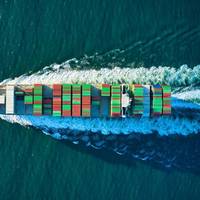
This week at Singapore Maritime Week, the U.S. Department of Energy (DOE) is advancing ambitious decarbonization targets for the maritime transportation sector, both domestically and internationally.DOE is teaming with over 15 government and industry partners in Singapore to foster partnerships and collaborate on clean energy solutions aimed at achieving net zero-emissions in the maritime sector by 2050. Domestically, DOE’s Office of Energy Efficiency and Renewable Energy (EERE) is joining with ABS to create opportunities for data and information sharing to strengthen U.S. shipping. The U.S.
US Gulf Coast Fuel Oil Imports Hit Five-year Low
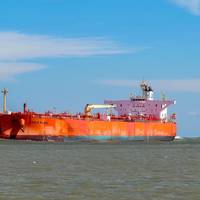
Imports of fuel oil bound for the U.S. Gulf Coast fell to a five-year low last month as refiners ran more cheap, heavy Canadian crude and geopolitical tensions in the Middle East pressured fuel oil flows.Fuel oil deliveries to the Gulf Coast dwindled in February to just 318,000 barrels per day (bpd), a 20% drop from the prior month and marking their lowest level since February 2019, data from tanker tracking firm, Kpler showed.Heavy fuel oil feedstocks like high sulfur fuel oil…
IMO’s PPR11 Agrees Guidance on Key Environmental Issues
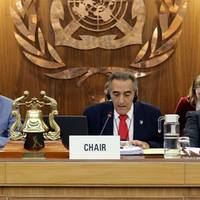
The IMO’s Sub-Committee on Pollution Prevention and Response (PPR 11) agreed new guidance on several key environmental issues.Meeting from February 19 to 23, 2024, the following guidance will now be submitted to the Marine Environment Protection Committee for approval this March (MEPC 81) and October (MEPC 82):• the safe transport of plastic pellets by sea• best practices for cutting black carbon emissions from ships operating in or near the Arctic• reducing risks of use and carriage…
Americas Cup Innovation & a Carbon-Free Shipping Future
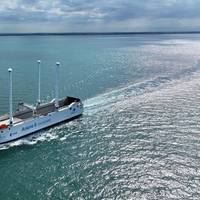
The Golden Gate Yacht Club (GGYC) represented by BMW Oracle Racing and the Société Nautique de Genève (SNG), the Americas Cup defending champion, represented by Team Alinghi were entwined in a 2.5-year legal battle over multiple court cases, including hearings in the New York Supreme Court and the Appellate Division of the New York Supreme Court, prior to the 33rd edition of the race, due to take place in 2010.The parties disagreed about the location, format, and restrictions on boat design, all of which were changed by the courts prior to the race.
Why Ammonia Is the Fuel of the Future for Maritime Shipping
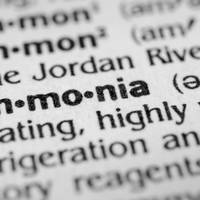
Commercial maritime shipping has a fuel problem. While the industry has cemented its position as the essential piece of the global supply chain—moving more than 80% of all international goods by volume—its dependence on carbon-emitting fuel has come with a high cost.Maritime shipping is responsible for roughly 3% of all greenhouse gas emissions, according to the International Maritime Organization. The longer that ships continue to run on carbon-emitting fuel, the harder it will be to reach net zero emissions by 2050 and to prevent the worst damage predicted by climate scientists.
LPG: Dual-Fuel Engines Prove Their Worth
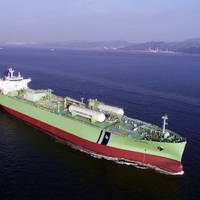
BW LPG has demonstrated the value of dual-fuel LPG operations beyond the company’s initial aim of meeting IMO 2020 Sulphur Cap regulations.In October 2020, the LPG carrier BW Gemini became the first very large gas carrier (VLGC) to have its low-speed main engine converted to an LPG dual-fuel engine. The project started several years earlier, sparked by Oslo-listed BW LPG’s preparations for the IMO’s 2020 Sulphur Cap regulations.Compared to heavy fuel oil, LPG reduces Sox emissions by approximately 97%…
Accelerating US CTV Market Development with Hybrid Solutions
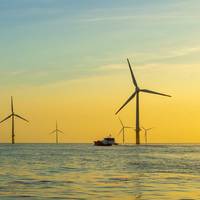
As the world looks to renewable energy sources to combat climate change and reduce reliance on fossil fuels, offshore wind has emerged as a promising frontier in the United States. A report by the University of California Berkeley released in August concluded that due to the nation’s long coastlines with sustained winds in many areas and falling turbine costs, offshore wind could feasibly supply between 10% and 25% of the country’s energy demand by 2050.While that may paint a rosy picture of a cleaner…
Aurora Botnia - RoPax Ferry + Greentech Proving Ground
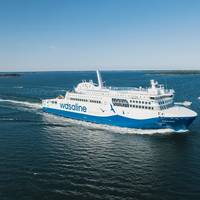
Built by Rauma Marine Constructions, in Rauma, Finland, and launched in 2021, the 150-meter-long Aurora Botnia boasts a long list of onboard equipment that help it to earn its “green” designation, a label that is confirmed via a Clean Design notation from classification society DNV. The ship is also compliant with the International Maritime Organization’s (IMO) 2030 greenhouse gas reduction target.Wasaline CEO Peter Ståhlberg describes Aurora Botnia as “a masterpiece of cooperation” and noted that the vessel is over 80% domestic made."I'm really proud of the Aurora Botnia.
Market Watch: Container Freight Rates Fall, Costs Soar
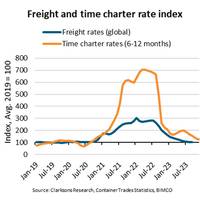
"So far this year, container volumes have fallen nearly 2% year-on-year while average freight rates have declined, reaching 2019 levels in September. Since then, they have continued to fall. However, the cost to charter a ship remains 25% higher than in 2019,” says Niels Rasmussen, Chief Shipping Analyst at BIMCO.Liner operators continue to struggle with a worsening supply/demand balance, affecting freight rates. On average, the fleet has year-to-date grown 5% and 19% compared with 2022 and 2019 respectively.







